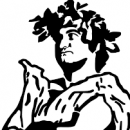I think its an issue that cannot be ruled upon apart from as an appeal to common sense and goodwill. This is a game with players from across the globe which uses a common language to play, English : problem there is that there is no single 'English' with one unified set of meanings for each word : quite the opposite : the strength and power of English is that any single word can have multiple meanings and uses and each can have a different 'weight' where ever it is used. Its what gives English such poetic might, it feeds comedy and drama, writing and conversation : the allusion, the pun, the double entendre, the synonym, the rythym, the twisting of meaning, and as Shakespeare so wonderfully displays, the new-minting of words and re-purposing of old ones to new effect.
The word 'twat' is a great example : its original (anglo-saxon) meaning is simple : a cut or clearing in a forest. It dont take much imagination to see how such a word could become a crudely poetic allusion to certain body parts. It seems in some regions that is the primary meaning of the word and thus it causes offence: in mine, the words meaning has primarily been to signify foolishness or stupidity, as an emphatic play on the word 'twit'. Thus, for me, the word does not offend at all as it does not carry any salacious meaning and so I shake my head and wonder at all the fuss about it.
A similar word would be 'cleft', with similar ancient origins : to most, it climbers talk, or maybe refers to a damaged palate : to me, it means female parts : in my youth, thats a word we used, among others, for that subject : we also used 'kilt', 'hedge', 'box', 'front garden' and many others : all 'innocent' words but also, in that, context very rude and thus offensive to some.
And that is the only rule we could work with and make sense of: what is the context of the word, what is the intention of its use : is it meant to shock, to insult, to draw attention to itself?
But lets not chuck the baby out with the bath-water : the joy of language, of conversation, of 'banter', of comedy and laughter is the skirting of the edges of meaning and decency : the art of making the 'rudeness' be in our heads, in our interpretation of meaning and intent. remove that and life quickly becomes very very dull.
Finally : I adore the name 'Biggus Dickus' : yes, its crude, school-boy humour : but when I see it, I also see Michael Palins injured and confused innocence as he struggles to understand why all these people think his good friends name is funny. For that one moment of sheer comedic genius alone, the world can handle a little bit of being offended.
Names
Re: Names
I am still laughing at the silent T and will be for a long time. I admire your craftsmanship in all things humorous be it dry, witty, or delayed. You should be a writer. 

damages or butthurt received in the posting of these words is solely yours and yours alone
if counseling is needed therapist ahben buthert or cryin ferdays is available at the tp kleenex & creme clinic

I am a silly head and a meanie.
if counseling is needed therapist ahben buthert or cryin ferdays is available at the tp kleenex & creme clinic

I am a silly head and a meanie.
-

Dmanwuzhere - Posts: 3097
- Joined: Tue Feb 07, 2017 5:29 pm
- Location: Balls Drive Bracebridge, Ontario.
Re: Names
Dmanwuzhere wrote:I am still laughing at the silent T and will be for a long time. I admire your craftsmanship in all things humorous be it dry, witty, or delayed. You should be a writer.
Thank-you

I wrote a fair bit, many moons ago : had some work published too, but never quite translated that into a full-time career. Now it's just for fun.
-1 : Move to archive.
-

Most Lee Harmless - Posts: 3993
- Joined: Sat Mar 01, 2014 3:48 pm
Re: Names
Danik wrote:Dmanwuzhere wrote:I am still laughing at the silent T and will be for a long time. I admire your craftsmanship in all things humorous be it dry, witty, or delayed. You should be a writer.
Thank-you
I wrote a fair bit, many moons ago : had some work published too, but never quite translated that into a full-time career. Now it's just for fun.
I knew it!

My
 too!
too!I would like to read your work, if it's published as an e-book.

Btw, I have never seen some ''innocent maiden'' ever reacted to the ''inappropriate'' nicknames, so, let ''innocent maidens'' stay out of this conversation.

Lana - Hater of ''political correctness''
-

Lana - Posts: 592
- Joined: Thu May 07, 2015 8:17 pm
Re: Names
Context in a world view-
When I wake up with a bloody nose, I wash my pillow.
When Danik wakes up with a bloody nose, he just discovered he has one.
When I wake up with a bloody nose, I wash my pillow.
When Danik wakes up with a bloody nose, he just discovered he has one.
The Last of Barrett's Privateers
-

Stan Rogers - Posts: 1558
- Joined: Sat Mar 01, 2014 6:49 pm
Re: Names
Mack wrote:Dmanwuzhere wrote:Address the last post first in a manner that is logical and then we can move on to your "challenge". I am not a schoolboy who reacts to dares.
I have no respect for this guy, even though no one cares.
About what you think or what dman has to say?
I'm only here for Game Development and Forum Moderation.
If you see a forum rule violation, report the post.
If you see a forum rule violation, report the post.
-

DezNutz - Players Dev Team Coordinator
- Posts: 7091
- Joined: Sat Oct 24, 2015 4:51 pm
- Location: United States of America
Re: Names

damages or butthurt received in the posting of these words is solely yours and yours alone
if counseling is needed therapist ahben buthert or cryin ferdays is available at the tp kleenex & creme clinic

I am a silly head and a meanie.
if counseling is needed therapist ahben buthert or cryin ferdays is available at the tp kleenex & creme clinic

I am a silly head and a meanie.
-

Dmanwuzhere - Posts: 3097
- Joined: Tue Feb 07, 2017 5:29 pm
- Location: Balls Drive Bracebridge, Ontario.
Re: Names
This whole conversation is quite ridiculous..
Comes down to the simplest of things..
Who's game is this?
Who defines the rules?
Who enforces the rules?
Admin, not being in everyone's shoes asks for people's opinions and to report offensive names. Once you do so, you still need to understand that ultimately it's up to them what goes and stays. If you don't like their rulings either find a new game, (this one ain't for you), or get over it.
No one is saying you can't state your opinion, but do so and move on. This new generation of player whines and moans over everything, i've not seen so much "he touched me", "she touched me first" in... well I just havn't here. Admin is now so focused on this childish junk they lose time developing what matters.
If your a player who thinks the rules are unfair, go make your own damn game and police that yourself.
Don't want to leave? - Then buck up princess.
Comes down to the simplest of things..
Who's game is this?
Who defines the rules?
Who enforces the rules?
Admin, not being in everyone's shoes asks for people's opinions and to report offensive names. Once you do so, you still need to understand that ultimately it's up to them what goes and stays. If you don't like their rulings either find a new game, (this one ain't for you), or get over it.
No one is saying you can't state your opinion, but do so and move on. This new generation of player whines and moans over everything, i've not seen so much "he touched me", "she touched me first" in... well I just havn't here. Admin is now so focused on this childish junk they lose time developing what matters.
If your a player who thinks the rules are unfair, go make your own damn game and police that yourself.
Don't want to leave? - Then buck up princess.
"Not all treasure is silver and gold mate."
-

Charles Vane - Players Dev Team Member
- Posts: 1291
- Joined: Mon Mar 28, 2016 12:32 pm
Powered by phpBB © 2000, 2002, 2005, 2007 phpBB Group
Design by PiratesGlory.com
Design by PiratesGlory.com
